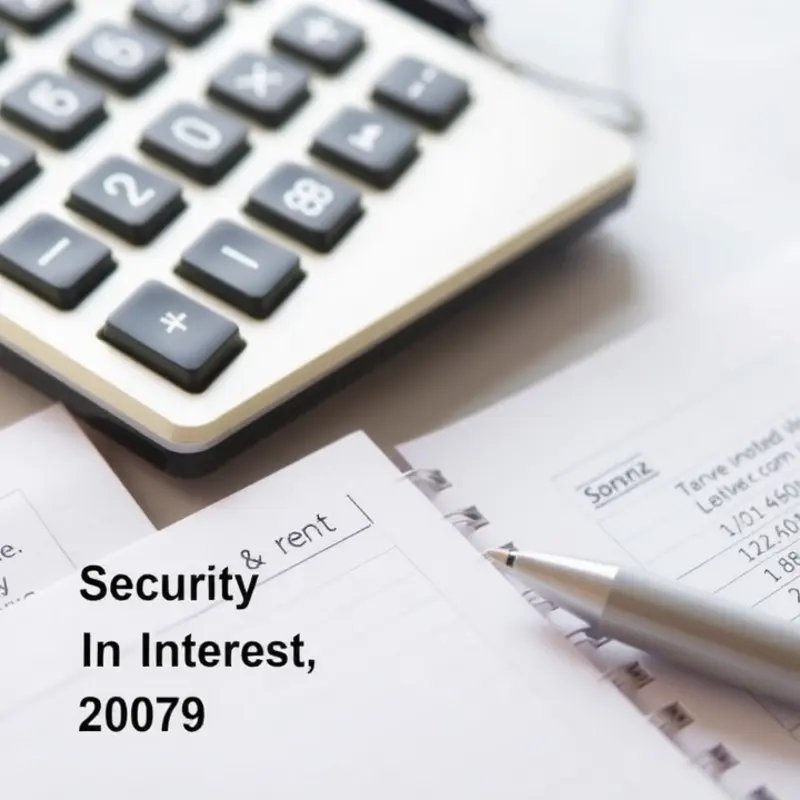For many young professionals, first-time renters, students, couples, and families, the prospect of renting an apartment can be both exciting and overwhelming. One crucial aspect of the renting process is the security deposit, which landlords often require as a safeguard against potential damages or unpaid rent. But did you know that in some states, landlords are also required to pay interest on your security deposit? Understanding your rights and the implications of security deposit interest can empower you as a renter and ensure that you make informed financial decisions. This guide will delve into the ins and outs of security deposit interest, covering everything from how it works to what you should know before signing a lease. Let’s embark on your rental journey with clarity and confidence, ensuring you have all the tools you need to secure your new home.
The Basics of Security Deposits

A security deposit is a common requirement when renting a home or apartment. This upfront payment serves as a financial protection for the landlord, covering potential damages or unpaid rent during the tenancy. Typically, the security deposit is equivalent to one month’s rent, but it can range from a few hundred dollars to several thousand, depending on the property’s location, condition, and rental market.
Landlords ask for security deposits to ensure that they can cover repairs or cleaning fees if a tenant leaves the property in poor condition. Additionally, it acts as a buffer should the tenant fail to fulfill their rental obligations, like paying rent on time. While some might view this as a financial burden, it provides tenants an implicit reminder of the importance of maintaining the property.
Understanding your rights regarding security deposits is crucial. States have specific laws governing how landlords must handle these funds. Typically, deposits should be kept in a separate, interest-bearing account. Upon moving out, tenants are entitled to a refund of the deposit, minus any valid deductions for damages or unpaid rent. It’s important to note that normal wear and tear cannot be deducted from a security deposit. Learn more about renters’ rights and obligations concerning leases here.
State laws also outline the timeline within which landlords must return the deposit and provide an itemized list of any deductions. This period generally ranges from two weeks to a month after lease termination. If any disputes arise, such as disagreements over deductions, small claims court can offer a resolution avenue.
Familiarizing yourself with state-specific regulations can prevent unpleasant surprises when moving out. For instance, some states impose penalty fees on landlords for failing to return the deposit within the stipulated timeframe. Understanding these nuances can empower renters to manage their rental agreements more effectively and with increased financial confidence.
In summary, while security deposits are a standard part of renting, they come with a set of rules that both landlords and tenants must follow. By gaining a good grasp of these basics and knowing your rights, you can navigate your rental experience with greater ease and assurance.
Security Deposit Interest: What You Should Know

Security deposit interest can significantly impact your rental journey, yet it often remains puzzling. Understanding how it works begins with knowing that not all states require landlords to pay interest on security deposits. States like Massachusetts, Illinois, and New York mandate this, while others do not. Check your state’s regulations to grasp your rights and expectations.
The calculation of security deposit interest varies. Generally, it depends on the local bank’s savings rate where the deposit is held. Some states specify an interest rate, whereas others use market rates. Suppose you rent in a state where landlords must invest your deposit in an interest-bearing account. In that case, you are entitled to receive the accrued interest when your lease ends or annually, depending on local laws.
Claiming back interest alongside your security deposit requires diligence. Upon lease termination, remind your landlord of any interest owed. Provide a written request for the return, detailing your deposit amount, any applicable interest, and your forwarding address. If deductions are necessary for damages or unpaid rent, ask for a detailed statement to ensure fairness.
Negotiating rental terms to secure deposit interest can be advantageous. Include clauses in your rental agreement that specify the expectations for accruing and returning interest. If the landlord is unwilling, a negotiation point can be a slightly reduced rent in exchange for waiving the interest.
Being informed about your rights enhances your confidence as a renter. It’s crucial to document all correspondences regarding your security deposit and any interest earned. This ensures you can substantiate your claims if disputes arise. Additionally, it’s worth exploring guides on renters’ tax deductions to determine if interest on deposits is taxable income in your situation.
In summary, while not universally mandated, security deposit interest is a beneficial aspect to understand in states where it’s required. Awareness and clear communication with your landlord will aid in reclaiming any owed interest, and negotiating your rental terms effectively can secure your financial well-being in the long term.
Final words
Navigating the rental landscape can be complex, but understanding your rights regarding security deposits—and specifically security deposit interest—empowers you as a tenant. Whether you are a young professional, a student, or starting a family, awareness is the first step toward making sound financial decisions. Always review your lease agreement carefully and don’t hesitate to ask your landlord questions regarding your security deposit. Armed with the right knowledge, you can confidently embark on your renting journey, knowing that your financial interests are protected.









